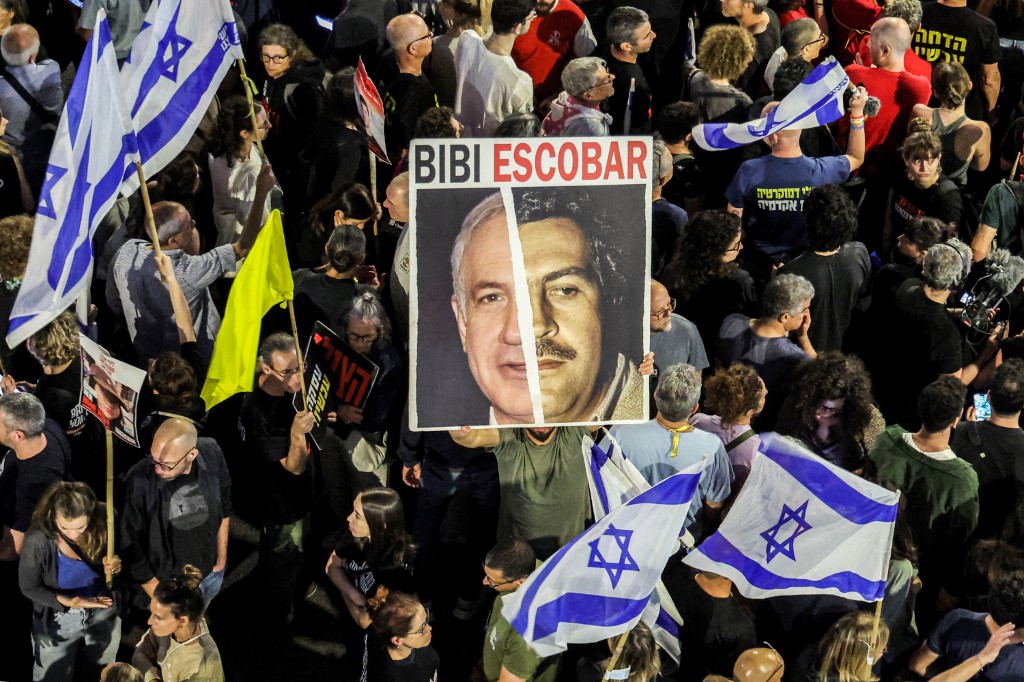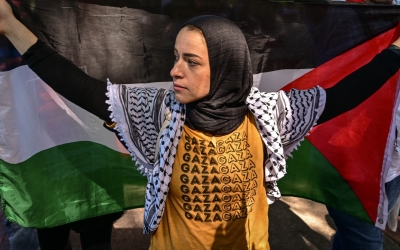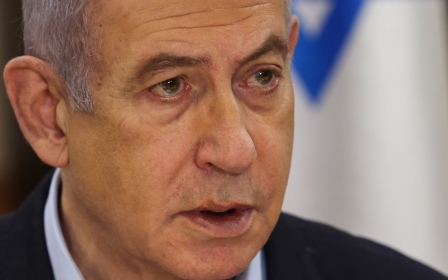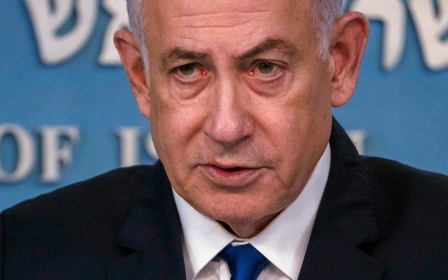War on Gaza: Darkness before the dawn in Palestine
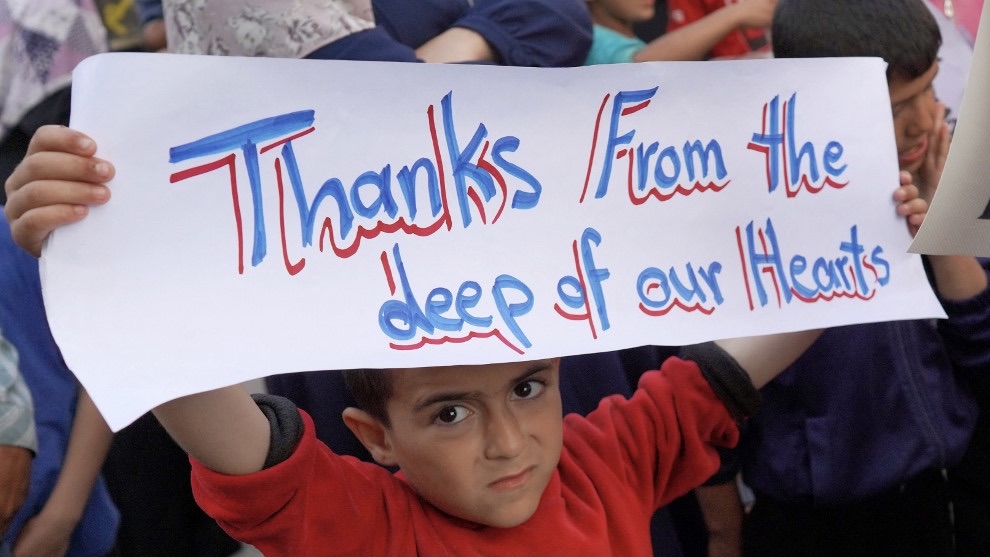
The unspeakable horrors in Gaza - the ongoing bombings, the devastating famine, the mass graves being uncovered, and the complete destruction of all infrastructure - are unparalleled in the history of apartheid Israel’s oppression of Palestinians.
The rationale behind the genocide is clear when looking beyond the devastated enclave of Gaza. Israel’s policies across historic Palestine continue to be aimed at one goal: emptying the land of its indigenous Palestinian population.
Across the occupied West Bank, over recent weeks, Israeli settler militias and military forces have carried out attacks in 120 villages and wreaked large-scale destruction in most refugee camps, killing, maiming, and arresting thousands.
Since 7 October, 806 buildings in the West Bank have been demolished, displacing 1,758 people and affecting almost 519,000 Palestinians. Around 25 Palestinian communities have been ethnically cleansed, 492 Palestinians killed and 8,088 illegally detained.
In parallel, Israel has seized unprecedented amounts of West Bank land. It has confiscated 37 sq km of land, including the single largest land seizure in 30 years.
New MEE newsletter: Jerusalem Dispatch
Sign up to get the latest insights and analysis on Israel-Palestine, alongside Turkey Unpacked and other MEE newsletters
To date, 42 percent - or 2,380 sq km - of the West Bank is almost inaccessible to Palestinians. Evictions of Palestinians have sped up in the Jordan Valley and the south of Hebron with the aim of expelling the communities completely from the area.
Israel has also dramatically accelerated settlement construction. Finance Minister Bezalel Smotrich announced on 6 March that 18,515 settlement houses had been approved over the past year. In its 2024 budget, Israel allocated $193m for new settlements and a further $1.02bn to their road infrastructure.
Effectively, funds of $1.18bn that would have benefitted Palestinians with Israeli citizenship are being redisbursed to pay for the illegal settlements.
A dead end
Palestinians are in the darkest moment of a long and painful history of Israel’s settler-colonial onslaught. Yet, the assurances of “total victory” by Israel’s Prime Minister Benjamin Netanyahu seem far from coming true. Israeli media rather denounces “total defeat”, on the ground and internationally.
Even the settler rampages in the West Bank don’t stem from a sense of breakthrough. A recent study from Reichman University sees Israel’s settlement policy as a demographic failure.
Follow Middle East Eye's live coverage of the Israel-Palestine war
Even though the number of illegal Israeli settlers increased over the last 13 years from 311,300 to 491,548, because of an even larger increase of indigenous Palestinians in "Area C", the percentage of the illegal settler population there decreased from 81 percent to 58.1 percent.
The Israeli project is in crisis. The economy shrank by 20 percent in the last quarter of 2023. The director of Israel’s Chamber of Inbound Tourism, Yossi Fattal, compares Israel’s isolation to North Korea. Around 58 percent of all construction sites in the Jerusalem region and 41 percent in Tel Aviv and the central regions are shut down, and its tech industry continues to implode.
Trust that western backers will send enough funds to sustain Israel’s settler-colonialism is faltering. The world’s two biggest rating agencies, Moodys and S&P Global, have downgraded Israel and the IMF has slashed growth forecast in half, down to 1.6 percent.
The attempt to spark a regional war by bombing the Iranian embassy in Syria, Israel’s favourite bogeyman, has been met with a carefully calculated Iranian response and a clear veto by the White House against further escalation.
The air defences during one night of Iranian attacks cost up to $1.4bn, which would make a full-scale war economically, politically and militarily unviable.
The Israeli government survives from one internal crisis to the next.
Despite the war propaganda, Israeli society is more divided than ever, and the majority want Netanyahu and his government to go.
Today, apartheid Israel is unable to see an exit strategy.
Light at the end of the tunnel
The cost for Israel’s failures is paid by the Palestinians, who continue to be killed, starved, hunted down, maimed and displaced. Their homes and infrastructure are wiped out.
Official leadership isn’t offering a way forward either. The Palestinian Authority (PA) divides its efforts between surveilling Palestinian protesters in the streets and demanding the recognition of a non-existing state, which could prolong its own existence but does nothing to actually end the genocide in Gaza and the ongoing ethnic cleansing.
The US veto in the UN Security Council against the recognition of a Palestinian state has left the PA angry and also without a plan.
Yet, Palestinians have two resources that give us strength.
Our sumoud (Arabic: steadfastness) hasn’t been broken even in these dark times. What we have, we share. We protect and shelter each other, and organise for our survival. Our society, our movements, local committees, and organisations are holding up. We mobilise, analyse, develop and implement strategies.
Beyond that, we have justice on our side. The International Court of Justice has ruled that Israel is prima facie committing genocide in Gaza. UN bodies and virtually all globally respected human rights organisations and institutions recognise that Israel has structurally built a regime of apartheid - a crime against humanity.
The UN General Assembly and Security Council have repeatedly demanded an immediate ceasefire, an end to the war crime of settlement construction, the right of return for refugees, and more.
People from across the world, and increasingly governments, especially in the Global South, realise that at stake are not only the lives of 2.3 million Palestinians but the survival of the basic principles of humanity, together with the system of international law and the United Nations.
Twenty years ago, Palestinians launched their anti-apartheid movement with the call for Boycott, Divestment and Sanctions (BDS). Today, BDS campaigns and wins are growing like never before.
Complicit companies are losing profits as consumers stage global boycotts, and institutions are forced to divest from apartheid Israel.
Students and faculty from the United States to Australia have started a global campus uprising. These scenes evoke the heydays of the protests of the 1980s against apartheid in South Africa, and the 1960s protests against the Vietnam War.
Lawyers and legal organisations are filing ever more cases against governments that enable and authorise support for Israel’s genocide.
This is the worst moment in our history and marks one of the worst failures of humanity.
Yet, the night is darkest before dawn. We have no time to lose. By joining forces internationally, we can end the genocide, overcome Israeli apartheid, and build a future of freedom, justice, and equality, from the river to the sea.
The views expressed in this article belong to the author and do not necessarily reflect the editorial policy of Middle East Eye.
Middle East Eye delivers independent and unrivalled coverage and analysis of the Middle East, North Africa and beyond. To learn more about republishing this content and the associated fees, please fill out this form. More about MEE can be found here.




